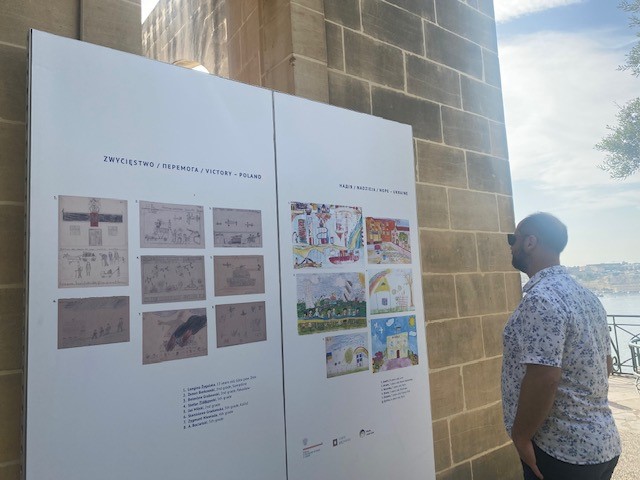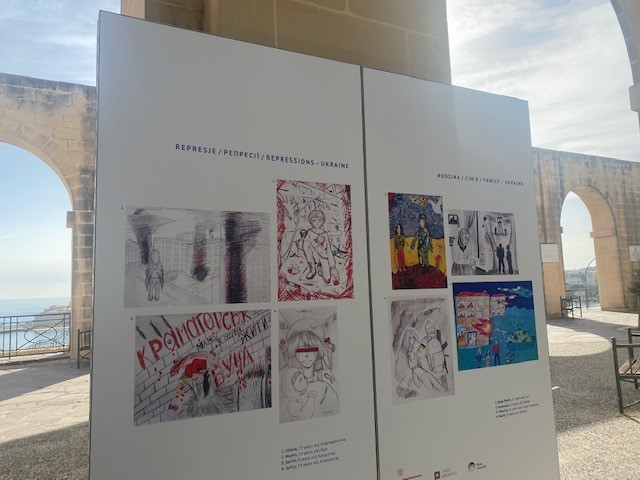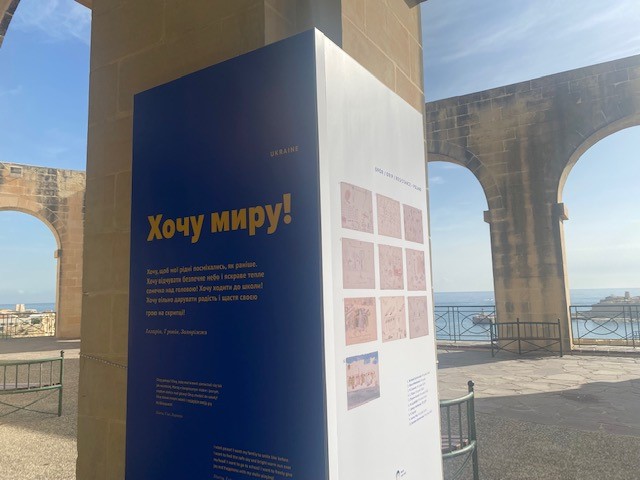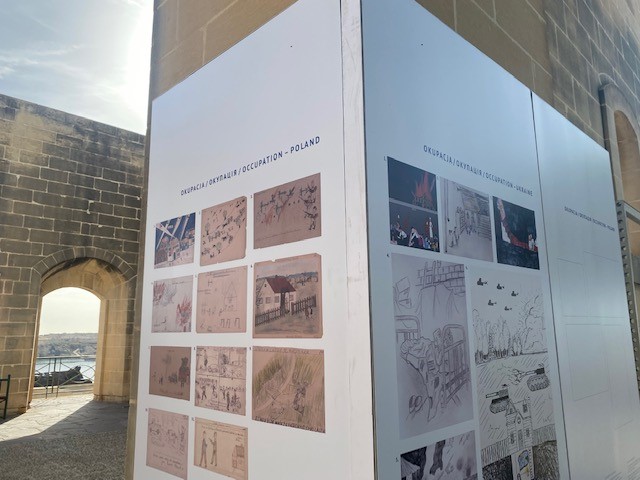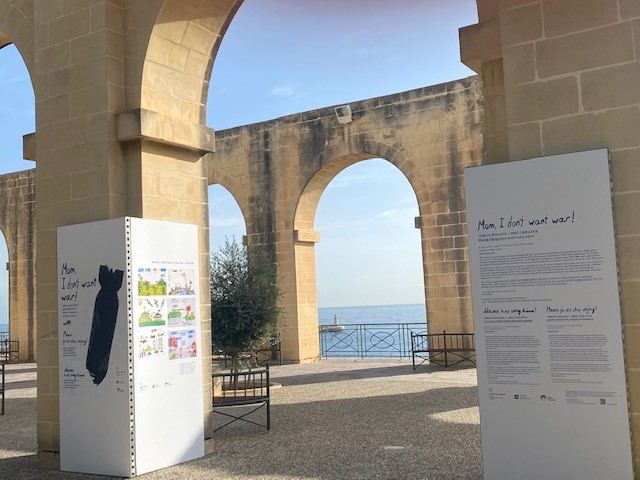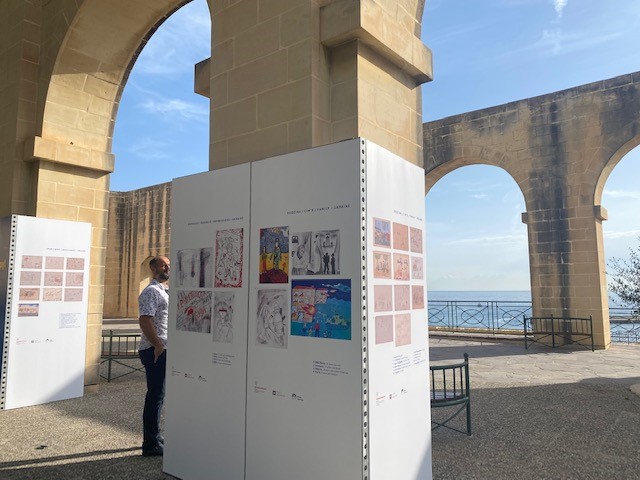'Mom, I don't want war!' exhibition at the Lower Barrakka Gardens in Valletta
19.09.2022
The Embassy of the Republic of Poland in Valletta organized an exhibition entitled ‘Mom I don't want war’ prepared as part of the Polish-Ukrainian project of the State Archives and Mom I See a War Initiative. The exhibition can be seen from 19th of September till 3rd of October at The Lower Barrakka Gardens in Valletta.

The aim of the exhibition is to show the tragedy of war seen through the eyes of a child by comparing historical and contemporary drawings by the youngest who lived and grew up during the war.
The drawings by Polish children used for the exhibition were drawn after the war and they documented their experiences during World War II and the German occupation in 1939-1945. The drawings are preserved in the Central Archives of Modern Records (AAN) in Warsaw, in the Ministry of Education complex from 1945-1966. Drawings of Ukrainian children are contemporary works related to the current war in Ukraine, collected on the Mom I see war portal.
See more: https://momidontwantwar.eu/en/
From the Intoduction to the exhibition:
A child is not a soldier, he does not defend the homeland,
though he suffers with it
Janusz Korczak
We aim to show that war always looks the same through the eyes of a child. Irrespective of place and time, it is a huge evil, and the child is always the victim of it. The similarity between historical and present-day drawings is striking. Children draw tanks, planes dropping bombs, fires, and explosions. They draw the injured and the dead, the ruined houses, the graves. They draw themselves and their family, they draw evacuation and escape. But they also draw hope and their dreams for the future. By putting images and words together in thematic groups: fighting, occupation, family, repression, resistance, destruction, victory-hope, we want to emphasise the fact of how similar the scenarios of the invading wars are. The time changes, the place changes, the child witnesses change, but the war is always the same:
It cannot hear nor see, still less feel.
J.J. Letria
The program mentors: dr Dorota Sadowska (University of Warsaw); prof. Olha Kulinich (Taras Shevchenko National University of Kyiv).
